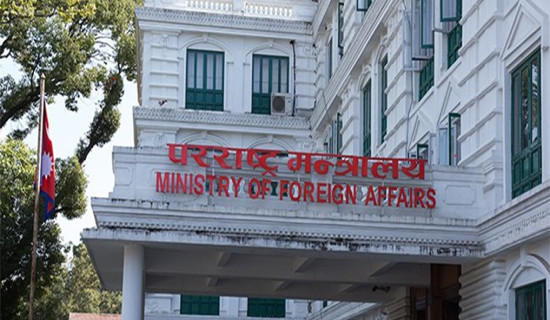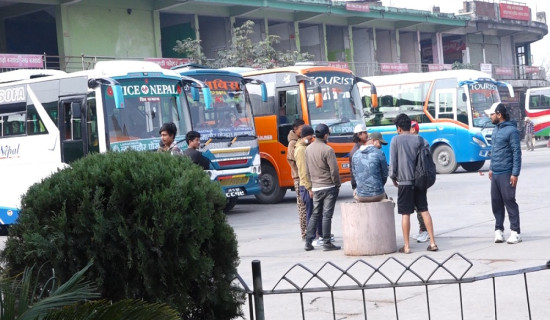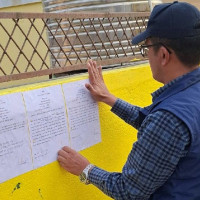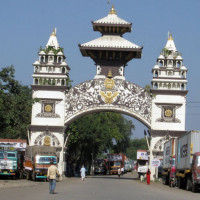- Wednesday, 4 March 2026
Consultation workshop for youth perspectives on Nepal's biodiversity strategy
By A Staff Reporter,Kathmandu, Aug. 4:To highlight the role of active youth engagement in biodiversity conservation, the Global Youth Biodiversity Network (GYBN) Nepal organised a youth consultation workshop on Strengthening the National Biodiversity Strategy and Action Plan (NBSAP) on Friday.
This event marks a pivotal step towards incorporating youth perspectives into Nepal's biodiversity conservation framework, said a press statement issued by GYBN on Saturday.
The NBSAP is the leading policy document outlining Nepal’s comprehensive approach to biodiversity conservation. It reflects Nepal's commitment to fulfilling international obligations as a signatory to the Convention on Biological Diversity (CBD), the statement said.
The Ministry of Forests and Environment, with support from the United Nations Development Program (UNDP) in Nepal, is currently revising the NBSAP to align with global biodiversity targets set by the Kunming-Montreal Global Biodiversity Framework (KMGBF) during COP 15.
The youth consultation gathered a diverse group of young individuals, providing a platform for discussions and formulating expectations and recommendations for Nepal's NBSAP.
Shreya Adhikari, Chapter Coordinator of GYBN-Nepal, stressed the crucial role of youth as integral partners and decision-makers in policy formulation. She underscored the aim of the consultation workshop to support the NBSAP review process and encourage effective youth involvement in implementing priority actions.
Discussions during the consultation focused on emerging threats, challenges and opportunities for youth in biodiversity conservation in Nepal, the statement read.
Participants in the programme highlighted the importance of documenting traditional ecological knowledge and the crucial role of indigenous and local communities in protecting biodiversity. The consultation proposed integrating community participation in decision-making and resource sharing.
Raju Chamling, an Indigenous representative, shared the challenges faced by indigenous communities, including knowledge and language barriers that hinder their advocacy efforts. He stressed the impact of hydropower projects on indigenous lands in the Khotang and Shankhwasabha districts, where inflated land purchases by outsiders have disadvantaged indigenous communities.
Participants reached a consensus on empowering youth from all communities to become leaders in biodiversity conservation. They stressed enhancing youth engagement to ensure effective policy implementation and discussed how youth representation from indigenous and local communities can bridge gaps between policymakers, stakeholders and local communities.
“These discussions are crucial for ensuring that youth voices are heard in policy formulation. I am very glad that GYBN brought together youths from diverse backgrounds to have input on this important policy document. We hope that the recommendations will be fruitful,” said Bijay Bashyal, a participant in the workshop.
Krishna Chandra Paudel, leading the NBSAP revision, expressed optimism about the consultation’s impact. “This workshop will contribute towards youth-focused agendas and propose recommendations for engaging youth in biodiversity conservation and resource management. We are happy that youths have organised themselves and raised their concerns and put forward recommendations on youth-focused targets.”
Priyanka Pandey, Youth Coordinator of GYBN-Nepal stressed that GYBN is committed to empowering and educating youths to take an active role in biodiversity conservation efforts. These priorities and recommendations will be compiled and presented to the Ministry of Forest and Environment, the NBSAP Secretariat, and other relevant stakeholders.





-square-thumb.jpg)










